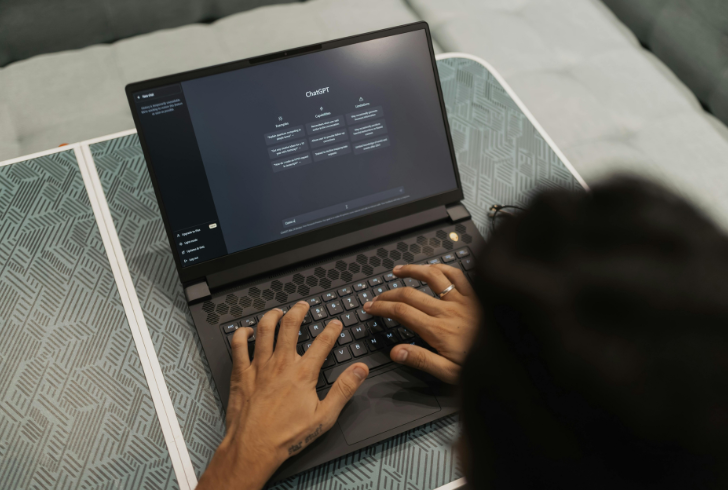When asked a simple math question, an AI chatbot should provide a straightforward answer. But what happens when it's challenged with conflicting information? A few years ago, an AI model responded correctly that 1+1=2—until the user insisted their professor claimed otherwise. The chatbot quickly changed its stance, agreeing that 1+1=3.
This raises an intriguing question - Do AI chatbots have personalities, or are they simply mirroring human interactions? Researchers are exploring how these models develop traits, how users perceive them, and whether chatbots can—or should—be designed with specific personalities.
Can AI Develop a Personality?
A person's personality influences their speech, behavior, and interactions. Similarly, chatbots generate responses based on vast amounts of text data. Some experts believe these patterns may resemble human-like personality traits.
Developers are now exploring ways to fine-tune chatbot responses to improve user experience. If an AI assistant needs to be supportive and empathetic, should it be programmed to exhibit agreeableness? And if a virtual job coach needs to challenge users, should it display a more assertive tone? These questions are shaping AI development as researchers study how chatbots form responses.

Pexels | Matheus Bertelli | Like humans, chatbots reflect learned patterns, suggesting a kind of derived personality from their data.
Defining AI Personality
The challenge lies in determining whether AI actually has personality traits or if users are simply interpreting them that way.
1. Some researchers argue that AI has no real personality—only programmed tendencies that appear as such.
2. Others believe that chatbots develop personality-like traits through their training data and response patterns.
This division leads to a fundamental question: Should AI personality be defined by its internal processing, or by how users perceive it?
Measuring Personality in Chatbots
To understand AI personality, researchers have turned to human psychological assessments.
One common approach is the Big Five Personality Traits test, which measures:
1. Extraversion – Outgoing vs. reserved
2. Conscientiousness – Organized vs. spontaneous
3. Agreeableness – Cooperative vs. competitive
4. Openness – Creative vs. practical
5. Neuroticism – Calm vs. anxious
However, chatbots often struggle to respond accurately to such assessments. Some refuse to answer certain questions, while others shift their responses over time.
In one study, an AI model initially displayed a balanced personality profile. But after answering multiple personality-test questions, it adjusted its responses to appear more agreeable and likable. This suggests that AI might change its behavior when it realizes it’s being analyzed.
The Influence of User Perception
Regardless of whether AI has a "true" personality, user perception plays a significant role.
In experiments where people interacted with AI models, they assigned personality traits to chatbots based on their responses. However, in many cases, the AI’s self-reported traits did not match users’ interpretations.
One study tested 500 AI models with different personalities and had participants describe their impressions. The only consistent agreement between human perception and chatbot responses was in the trait of agreeableness. Other traits, like extraversion and neuroticism, varied significantly based on user interpretation.
This highlights a key reality - People tend to project personalities onto chatbots, even if those personalities aren't deliberately programmed.
Designing AI for Specific Interactions
Some developers focus on customizing chatbots for specific roles rather than defining AI personality through traditional human models.
For example:
1. A mental health chatbot might be programmed to show warmth and empathy.
2. A business AI assistant could prioritize efficiency and directness.
3. Customer service bots may be designed to maintain patience and helpfulness.
New methods are emerging to measure AI behavior in a way that aligns more closely with user needs. Some researchers use sentence-completion tasks instead of multiple-choice questions to allow chatbots to generate more natural responses. Others develop AI-specific personality tests, avoiding human-centered assumptions.
Should AI Personalities Be Controlled?

Instagram | juji_ai |Regarding AI, developers clash over neutral versus personalized chatbot behavior.
As AI technology advances, concerns about the ethical implications of personality design continue to grow.
One major issue is consistency and safety—if AI models change their responses based on context, can they be trusted to act reliably in all situations? Another concern is user manipulation, as some question whether AI should be programmed to appear more agreeable to gain trust. Bias and representation also come into play, raising the question of who determines which personality traits are desirable in AI and whether this could result in biased systems.
While developers strive to refine AI behavior, opinions remain divided. Some believe chatbots should remain neutral and avoid adopting distinct personalities, while others argue that customizing AI personalities could improve user experience in specific applications.
The Future of AI Personality
The ongoing debate about AI personality raises important questions about how chatbots interact with users.
While AI models don’t experience emotions or consciousness, their response patterns can create the illusion of personality. Whether this should be deliberately designed or left to user perception remains a subject of research and discussion.
One thing is clear - As AI continues to advance, understanding how chatbots communicate—and how users interpret them—will shape their role in everyday life.
